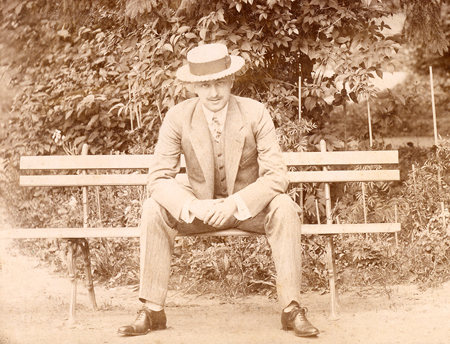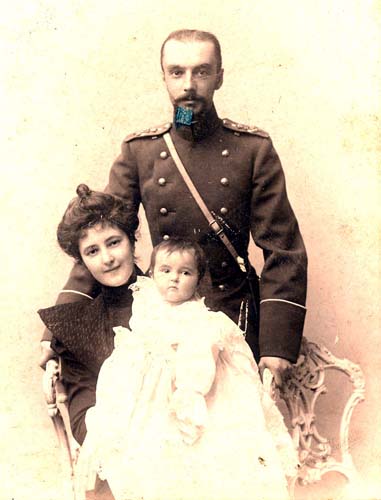In 1897, Niko’s daughter Salome-Mia married Alexander Obolensky, a major general in the Tsar’s private forces who later became a provincial Governor. After the Revolution, Alexander fought with the opposition Mensheviks and later joined an expatriate army in Estonia that managed to break through the Soviet front lines. However, the army was turned back before it reached St. Petersburg, and Alexander and his family fled to France, where they were forced to endure both material poverty and the psychological scars of seeing the total destruction of their way of life. In 1924, Alexander died, leaving his wife and children without material support.
The year before Alexander died, Salome sued the government-in-exile of the Republic of Georgia, which was also domiciled in France, in an effort to recover ownership of some of the Georgian national treasures that it had spirited out of the country when Georgia fell to the Red Army. She claimed that the items in question had been illegally seized from her family. The French courts, however, rejected her claim.
The years after this setback were difficult for Salome and her family—to the point where her son Nikolas Obolensky attempted suicide. However, they eventually managed to pick themselves up and adjust to their diminished circumstances. Nikolas finished a military education and went on to study economics at the University of Geneva.
In 1940, after the occupation of France by Nazi forces, Nikolas joined the French national resistance. The organization in which he served had strong connections to General Charles de Gaulle, and specialized in reconnaissance, smuggling arms, training members of the resistance, and helping captured British soldiers to escape. In 1944, Nikolas was captured by the Germans and sent to the concentration camp at Buchenwald. Against the odds, Nikolas survived Buchenwald and was liberated in 1945 by U.S. forces. For his heroic actions and personal sacrifice in the service of France, Nikolas was formally honored by General de Gaulle.
In 1963, Nikolas joined the clergy of the Orthodox Church, where he remained until the end of his life. His ecclesiastic service included stints as Rector of Biarica Montare, an Orthodox School in France, and as Monsignor of Alexander Nevsky Church in Paris.


